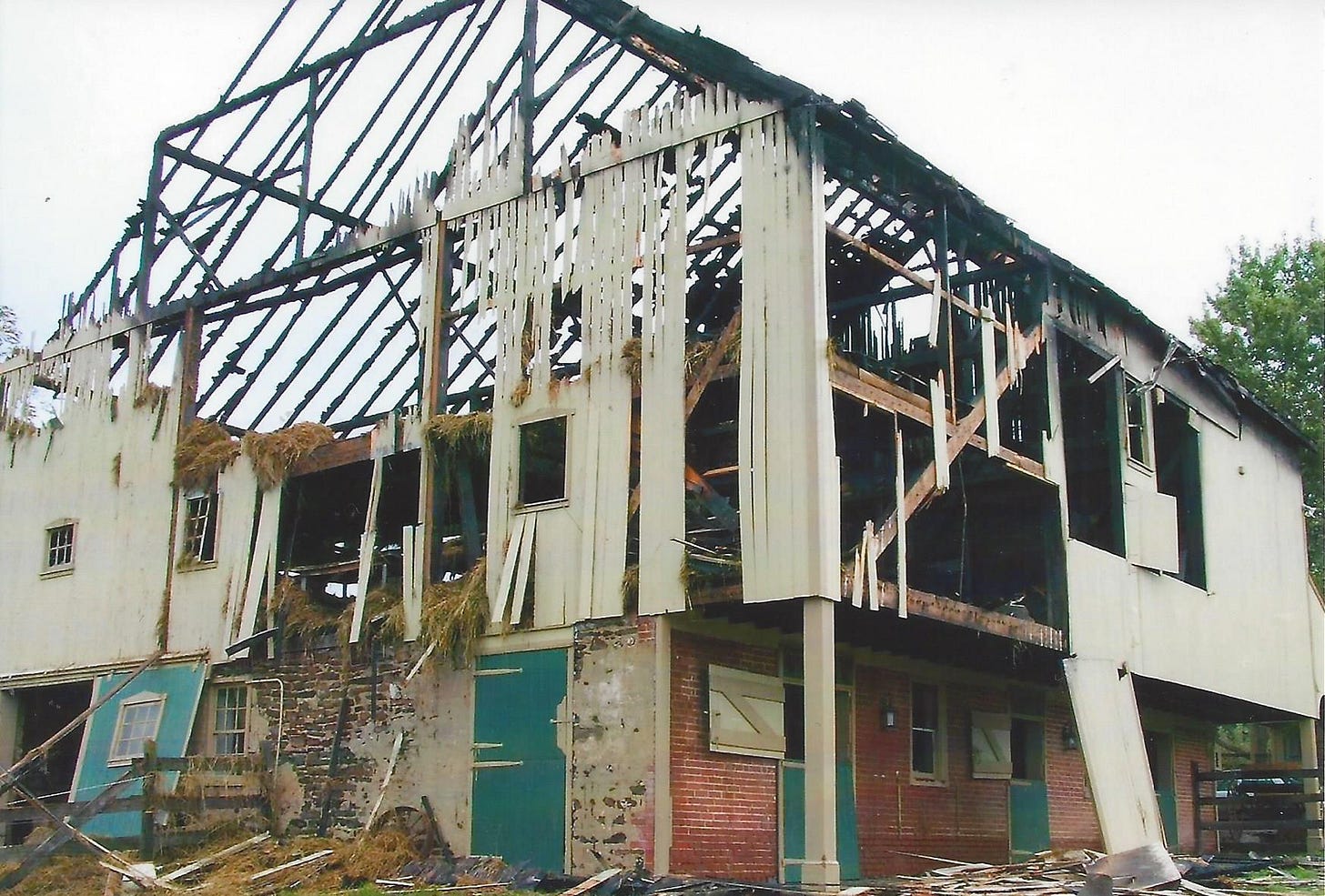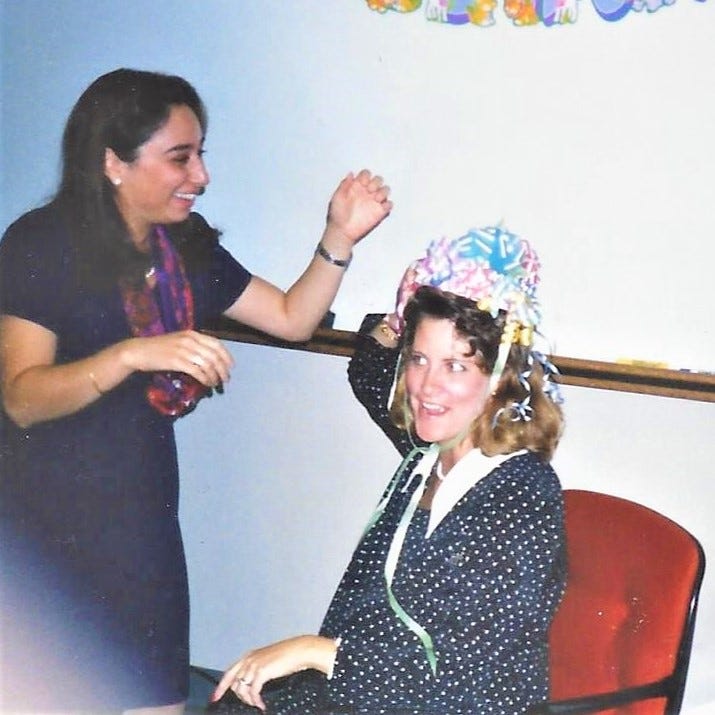When there really are no words
What do you say on someone’s no-good, horrible, worst-of-all-time day?

Sooner or later in your young adult life, a friend, a coworker, or a relative is destined to experience the very worst day of their life–some sort of calamity that likely involves losing someone near and dear to them.
These are challenging times for the distressed and perhaps for you too. When you were younger, you could rely on your parents or the other adults on the scene to tend to the grieving person. But once you’ve come of age, you’re called to be part of the response team.
You may feel unequipped for this job. After all, there’s no formal training for situations like this. And though you may desperately want to be there for your friend, you aren’t sure how to be.
These feelings are normal. Responding to grieving people is one of those skills acquired mainly via “on-the-job training.” But in the interest of giving you some ideas to work with when you find yourself in this predicament, I’d like to share what I’ve learned along the way.
To do this, I need to introduce you to my friend Zena. When I was working as a marketing director for Wyeth Nutrition, I hired Zena to be an associate product manager not long after she graduated from college. She turned out to be one of those employees who make you feel like you’ve been blessed if you are their manager.
Zena was so good at her job that I could hand her any assignment and be confident that she would execute it just as I would do it myself or even better. Beyond that, Zena was so pleasant and kind that if I ever created a character like her in a novel I wrote, I would be highly reluctant to let anything bad happen to her.

Alas, we do not live in a fairytale world where nice people are spared from horrible things. Sometimes bad things happen to good people. (In fact, a rabbi once wrote a book about it.)
A few years after the above photo, when Zena was pregnant with her first child, she lost the baby midway through her pregnancy. Although any pregnancy loss is traumatic, the fact that it came entirely without warning when she was so far along was devastating.
When I heard about Zena’s loss, I did all of the things you are supposed to do. I sent her and her husband a condolence card. I prayed for her. I felt wretchedly awful for her. These ways of responding to my friend’s suffering were relatively easy to execute because I was able to do them at a distance.
But then came the harder part–responding to my grieving friend in person.
Zena had returned to work after a few weeks off to grieve her loss. By this time, I was working as a contractor for my former employer, so I wasn’t in the office every day anymore. But eventually, I had a meeting to go to in the office. I felt anxious about seeing Zena. What was I going to say to someone who was recovering from such a terrible loss?
What words could comfort someone who’d been eagerly anticipating becoming a parent and ended up having that ripped away without warning? What could I say that wouldn’t just remind Zena of all of the hurt she’d experienced and make it worse?
I would have thought that by the time I was a full-fledged adult in my late 30s, I would have had access to the secret book that provides the exact words to say to your friend on such an occasion. But alas, such a book does not exist–in such instances, you are working without a script. I was just going to have to do my best.
When I walked into Zena’s office, I greeted her with a long hug (Since I was not raised to be a hugger, this was a little out of my comfort zone. But it was what the occasion seemed to call for.) I don’t remember saying anything.
When I sat down across from Zena, I asked her how she was feeling. And then I listened quietly and attentively while Zena told me the story of what had happened in detail.
As it turned out, Zena didn’t need me to say any magic words to break the spell of her misery. She just needed me to listen.
I asked questions where warranted and responded with sorrow or disbelief or whatever emotion I felt as I compassionately listened to her story.
I came away from that visit with Zena feeling as if I had responded appropriately, though it seemed hard to believe that being present and listening was enough. A few years later, I would learn why this helps.
When lightning struck our barn one stormy night and sparked a multi-alarm fire, it was, as you might imagine, a terrifying ordeal for me, my husband, and our children. After our 4-year-old’s first day back at preschool post-fire, I asked her teacher how Meredith’s day went.
When her teacher said my daughter had told the story of what happened that night several times, I was alarmed at first that my daughter was re-traumatizing herself. But her teacher, who had a better understanding than I did about how trauma works, explained it was okay–little Meredith should tell her story as many times as she needed to because it was helping her to process what she’d been through.
It’s funny–sometimes it takes years to acquire all the puzzle pieces you need to understand how some aspect of life works. But I hope sharing what I’ve pieced together about grief enables you to understand this key takeaway:
When you are dealing with someone who is grieving or traumatized, you don’t need to say anything in particular to them; you just need to be present and listen if they want to tell their story

I hope my experience also shows that even though you don’t feel qualified to aid grieving people, you already have within you what you need to deal with the situation (I believe God never puts us in situations we can’t handle).
So, if you get the call to be there on someone’s no-good, genuinely horrible, worst-of-all-time day, trust that you have what it takes to help comfort them, and keep these things in mind:
You shouldn’t deprive a grieving person of comfort just because you’re uncomfortable
I know it can feel like a lot of pressure to be one of the people called on to help minister to someone who’s experienced some kind of loss. It can be tempting to avoid such an assignment. But avoiding them is a missed opportunity to help.
Imagine how you would feel if you were going through one of the worst times in your life and you felt lonely and isolated because the people in your life shied away from dealing with you.
You don’t have to feel comfortable to be helpful. Making even a small, sincere effort can be meaningful.
Don’t be afraid of expressing emotions or causing the grieving to express emotions
Some of my discomfort about dealing with extremely upset people likely stemmed from how my family of origin deals with emotion. My parents have never been good at outwardly expressing emotions (my German-American and Polish-American people are rather stoic). As a youngster, I remember stifling my desire to cry during especially sad episodes of The Waltons because I had the sense that tears and crying were something that we didn’t do openly in our family.
I used to think that anything I said to a grieving person put them at risk of crying or becoming upset–which seemed like it would make it worse or make them feel embarrassed, further burdening an already burdened person. But there’s no need to be so afraid of emotion.
The reality is that it’s not a big deal if you make someone cry–that release of emotion may help them to feel better, or at the very least, it’s one small step towards healing.
It’s okay if you cry while you’re comforting your friend
It can actually be kind of beautiful. What’s more loving than mirroring some of what your friend is experiencing? In a way, it validates what they’re feeling.
Of course, you don’t want to get so upset that your friend ends up feeling like you’re the one who needs to be comforted. So use your discretion; if you’re not up to maintaining some control over your emotions, it may be best to postpone your encounter.
But being vulnerable and allowing your friend to be vulnerable helps deepen your relationship. Your friend will never forget that you were there for them during their time of trouble. And in a way, it will help reassure you–you’re showing yourself that should something horrible happen to you, you can count on other people being there for you.
It’s okay not to say much
We get so focused on talking sometimes that we forget that communication is a two-way street. Being a receiver–taking in the words your friend needs to express–counts too.
Plus nonverbal communication like a sincere hug and/or a compassionate expression also counts as an assist.
There is no one-size-fits-all set of words to help your friend feel better
“I’m so sorry” always works when you don’t know what else to say. But other than that, you just have to trust your instincts and respond.
Think of yourself as a lighthouse
When someone is grieving and thrown off course, they appreciate having someone they know being there–like a lighthouse. It may be hard for the distressed person to see through the fog of their despair. But if you are there like a beacon, it helps reassure them that all is not lost. And it reminds them that the skies will eventually clear, and they will get through the storm.
Simply being present for someone is huge. A distressed person may feel so unmoored from what’s normal that it is a comfort for them to encounter someone familiar. Your presence reminds them that something that they knew of life before the tragedy remains.
In case you’re wondering whatever happened to Zena, life did indeed go on. She and her husband went on to have twin sons and a daughter. (Though it’s hard for me to wrap my head around it, those sons are now college freshmen, and her daughter is in high school.)
It’s a good reminder that while some episodes of our lives and our friends’ lives can be overwhelmingly sad, we should trust that some of the best times of our lives are still ahead of us.

Jonathan "JP" Pokluda has counseled thousands of young singles through the pain and heartbreak of dating. He says, “No other issue facing single people today–nothing else in all of the human experience– causes as much interest, angst, confusion, curiosity, questioning, and pain as dating.” His book Outdated seeks to dispel the most common misconceptions about dating and offers alternatives for finding love that lasts.
Pokluda disputes that singleness is a problem to be fixed: “This myth says that being single is an unnatural state, and that single people are not fully whole or healthy until they find someone else to give their lives meaning. It’s the whole ‘You complete me’ mentality, which is just bad Hollywood theology.”
According to Pokluda, the overarching goal of any date should be to determine whether the relationship should move forward–basically, whether there should be another date. He says you shouldn’t turn dating into this super complicated thing.
Stay tuned for more snippets from Outdated this month.
In the olden days, moms used to clip newspaper articles for their kids if they thought it was something they needed to know. I’m watching for things you might have missed that may be helpful to you.
This week’s clips:
Worried that you’re going to say the wrong thing to a grieving relative or friend? A woman whose father struggled with terminal cancer for years shares 21 do’s and don’ts to help someone you love through grief.
When’s the right time to move from work that is comfortable to a career you have only dared to dream of? Mike Lewis interviewed 40 people who made such a leap and describes what he found in this Talk at Google.
Discomfort can be a useful warning sign, but it’s not helpful when it morphs into distress. A Life Kit episode offers practical tips on keeping distress in check.






Sigh. This is an achingly beautiful story, and yes, a lovely example of one of the many things our mothers should prepare us for. Words can do so much...but only so much.